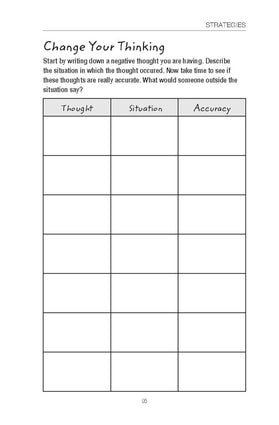.png)
How to manage treatment-resistant depression? How bad can treatment resistant depression get? What are the options for treatment resistant depression? What is considered treatment resistant depression?

Taking an antidepressant or going to psychological counseling (psychotherapy) eases depression symptoms for most people. Treatment- resistant depression can be hard to diagnose. Sometimes, other conditions or problems can cause similar symptoms.
Despite the name, there are still treatments that can help. We’ll review your options, from. TRD is a form of depression that doesn’t get better even after the patient has tried at least two antidepressant therapies. The initiative is supporting a team of researchers, led by Maurizio Fava, M. Racemic ketamine, which is most often given as an infusion into the bloodstream. This is sometimes called intravenous, or IV, ketamine.
Imagine being depressed and trying medication after medication—only to find none work. For Mental Health Month, we look at this little-understood condition, and how Janssen Pharmaceuticals researchers are working to crack its code. Some of them are beyond your control, such as the genes you were born with. Calming Mantras That Can Ease Depression.
How Music Therapy Can Relieve Depression. The figures fall far short of targets set out in draft guidance from the National Institute for Health and Care Excellence, which says that all patients who have not responded to two antidepressants should be. For them, two or more therapies have failed. In recent years, one theory in particular has gained traction: that many people with hard-to-treat major depression actually suffer from bipolar disorder. However, a paper published online this week in the Archives of General Psychiatry suggests otherwise—and the findings provide new insights into the nature of treatment-resistant depression.
Defining treatment resistance in depression has been a challenge for many reasons. When a patient isn’t getting a response to standard treatments for their mood symptoms, we need to explore whether there’s been an inaccurate diagnosis or if the patient isn’t being compliant with taking medications. If you have been treated for depression but your symptoms have not improve you should talk to your doctor. Today, however, there are many alternative approaches to treating TRD that can help ease the symptoms of major depressive disorder and improve patient outcomes.
There are quite a few different treatment options for treatment- resistant depression , including: Transcranial Magnetic Stimulation (TMS). TMS is a noninvasive treatment that uses magnetic pulses (like an MRI) to stimulate the areas of the brain that are affected by depression. Patients with treatment- resistant depression have seen positive. At Amen Clinics, we use brain SPECT imaging, as well as a comprehensive 4-circle approach that looks at biological, psychological, social, and spiritual elements to diagnose and treat depression symptoms.
Adjunctive psychotherapy can be effective in depression that has not responded to initial antidepressants. McIntyre RS, Lophaven S, Olsen Ck. A randomize double-blin placebo-controlled study of vortioxetine on cognitive function in depressed adults.
Depression is a common mental health condition, affecting an estimated million to million adults in America each year. Although medications and talk therapy can be highly effective for many, about a third of individuals may not respond fully to treatment. These individuals may have what is known as treatment- resistant depression.
Doctors may define the term treatment- resistant depression differently. Stimulants are often used for treatment- resistant depression , usually along with another oral antidepressant, such as an SSRI. Stimulants and psychostimulants for treatment- resistant depression (particularly amphetamine and methylphenidate) have been used in addition to conventional antidepressants for decades, and with great success.
TR and unfortunately only a small proportion are adequately treated following expert guidelines.
No comments:
Post a Comment
Note: Only a member of this blog may post a comment.